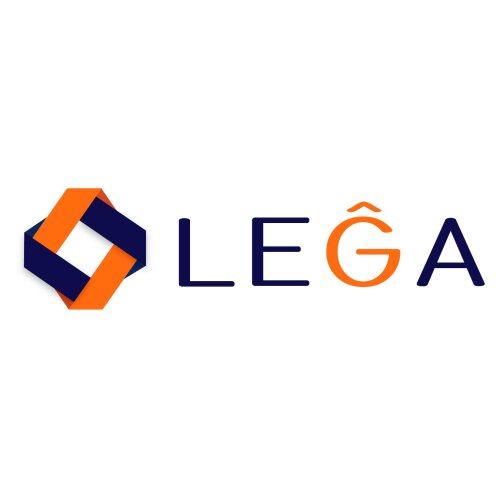Best Art & Cultural Property Law Lawyers in Venezuela
Share your needs with us, get contacted by law firms.
Free. Takes 2 min.
Or refine your search by selecting a city:
List of the best lawyers in Venezuela
About Art & Cultural Property Law in Venezuela
Art & Cultural Property Law in Venezuela is a specialized field that addresses the protection, management, and transaction of cultural heritage and artworks. Venezuelan law places strong emphasis on the preservation and safeguarding of its cultural patrimony, reflecting its vibrant heritage. This includes regulations for the protection of archaeological sites, historical monuments, and works of art, as well as processes for reclaiming stolen or unlawfully exported cultural items. These laws are designed to uphold the cultural identity of Venezuela while balancing the interests of private collectors, museums, and indigenous communities.
Why You May Need a Lawyer
There are various situations where individuals and organizations may require legal help in the field of Art & Cultural Property Law in Venezuela:
- Buying or selling artworks where provenance needs to be verified. - Engaging in international art transactions, where export licenses might be required. - Navigating the complexities of inheriting artworks or collections. - Participating in restoration or excavation projects where legal permits are necessary. - In the event of a dispute over ownership, authenticity, or restitution of cultural property. - To ensure compliance with local laws for galleries or cultural institutions. - Representing indigenous communities in negotiations regarding cultural artifacts.
Local Laws Overview
Key aspects of the local laws relevant to Art & Cultural Property Law in Venezuela include:
- The Constitution of Venezuela, which underlines the protection of cultural heritage as a fundamental responsibility of the state and citizens. - The Law for the Protection and Defense of Cultural Heritage, which regulates the preservation, restoration, renovation, and management of cultural assets. - Requirements for government-issued certificates before exporting any cultural objects. - Provisions against illicit trafficking, which align with international agreements like UNESCO conventions. - Legal frameworks that protect the rights of indigenous peoples concerning their cultural expressions and artifacts. - Responsibilities of museums, private collectors, and art dealers in adhering to provenance research and documentation.
Frequently Asked Questions
What is considered cultural heritage under Venezuelan law?
Cultural heritage under Venezuelan law includes archaeological sites, historical buildings, works of art, indigenous artifacts, and other tangible and intangible cultural expressions deemed important for the nation's history and identity.
Do I need a permit to export a painting from Venezuela?
Yes, exporting artworks may require permits to ensure they are not part of the protected cultural patrimony. It is advisable to consult with legal experts or government bodies before attempting to export cultural items.
How are disputes over art ownership resolved?
Disputes over art ownership are typically resolved through negotiation or legal proceedings, with considerations for provenance, documentation, and any applicable domestic or international laws.
What should I do if I inherit a collection of artworks?
If you inherit artworks, it's important to verify ownership, provenance, and any associated legal obligations. Consulting with a lawyer specializing in Art & Cultural Property Law can help navigate legal requirements.
How does Venezuela protect indigenous cultural property?
Venezuelan law recognizes and protects indigenous cultural property and heritage, ensuring respect for traditional knowledge and practices, and involving indigenous peoples in relevant legal processes.
Who ensures compliance with Art & Cultural Property Law in Venezuela?
Authorities such as the Instituto del Patrimonio Cultural (Institute of Cultural Heritage) are primarily responsible for enforcing compliance with cultural property laws in Venezuela.
Can I legally restore a historic building?
Restoration of historic buildings requires legal approval to ensure compliance with preservation standards. Engaging with a lawyer or relevant authorities can facilitate this process.
What legal responsibilities do art dealers have?
Art dealers must perform due diligence in provenance research, maintain records, and adhere to ethical and legal standards to prevent illicit trade and ensure legal compliance.
How can a lawyer assist with art provenance issues?
A lawyer can assist by conducting thorough provenance research, ensuring legal documentation is in place, and addressing any disputes or legal challenges related to ownership.
Are there tax implications for art transactions in Venezuela?
Yes, art transactions may have tax implications, including VAT or import/export taxes, depending on the nature of the transaction. Legal advice can help navigate these complexities.
Additional Resources
Those seeking legal advice or more information on Art & Cultural Property Law in Venezuela can consider the following resources:
- Instituto del Patrimonio Cultural: The governmental body responsible for cultural heritage management. - Ministerio del Poder Popular para la Cultura: Offers guidelines and support for cultural activities. - Local legal firms specializing in cultural property law. - UNESCO publications and guidelines on cultural heritage and property law. - Professional associations for art historians and legal experts in cultural heritage.
Next Steps
If you need legal assistance in Art & Cultural Property Law in Venezuela, consider taking the following steps:
- Conduct preliminary research to understand the basics of your legal needs. - Gather all relevant documents, including ownership records, provenance information, and any previous legal correspondence. - Reach out to a lawyer or law firm specializing in Art & Cultural Property Law in Venezuela for consultations. - Contact governmental bodies like the Instituto del Patrimonio Cultural for guidance and compliance requirements. - Engage with professional networks or organizations related to art and cultural heritage for additional support and advice.
Lawzana helps you find the best lawyers and law firms in Venezuela through a curated and pre-screened list of qualified legal professionals. Our platform offers rankings and detailed profiles of attorneys and law firms, allowing you to compare based on practice areas, including Art & Cultural Property Law, experience, and client feedback.
Each profile includes a description of the firm's areas of practice, client reviews, team members and partners, year of establishment, spoken languages, office locations, contact information, social media presence, and any published articles or resources. Most firms on our platform speak English and are experienced in both local and international legal matters.
Get a quote from top-rated law firms in Venezuela — quickly, securely, and without unnecessary hassle.
Disclaimer:
The information provided on this page is for general informational purposes only and does not constitute legal advice. While we strive to ensure the accuracy and relevance of the content, legal information may change over time, and interpretations of the law can vary. You should always consult with a qualified legal professional for advice specific to your situation.
We disclaim all liability for actions taken or not taken based on the content of this page. If you believe any information is incorrect or outdated, please contact us, and we will review and update it where appropriate.
Browse art & cultural property law law firms by city in Venezuela
Refine your search by selecting a city.











